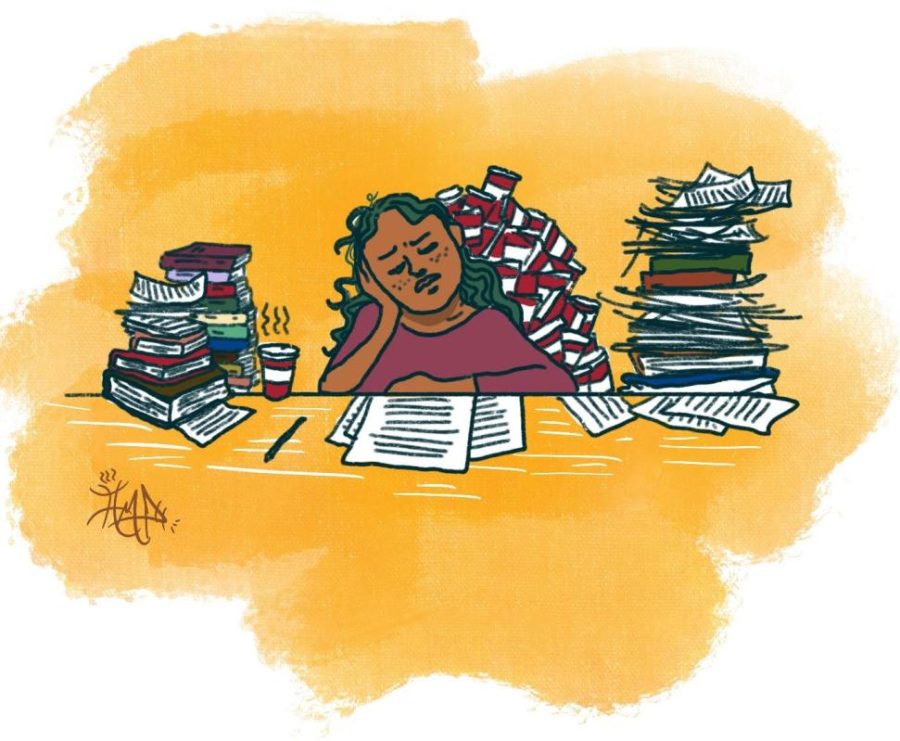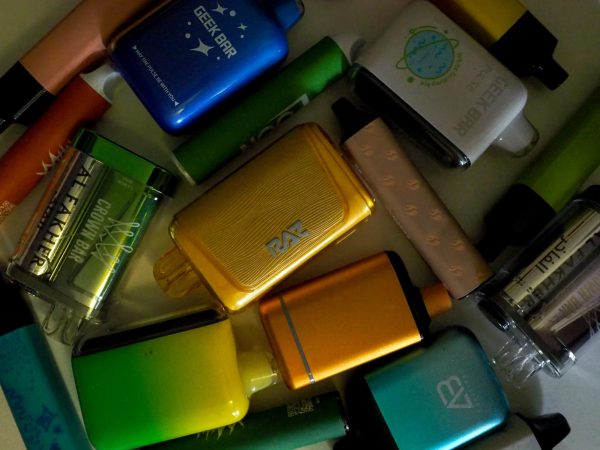Finals week survival guide
Dec. 13 marks the start of final exams week at UVM, causing increased anxiety and stress, said John Paul Grogan, director of public health outreach at the center for health and wellbeing.
The last stretch of the semester brings tests, projects and papers that often account for significant portions of students’ grades. In order to prepare for finals, students may neglect their personal needs, causing significant damage to their physical and mental health, Grogan said.
“There’s this mythology and narrative around pulling all-nighters, drinking lots of coffee, cramming and spending 10 hours in the library,” he said. “Those are exactly [what] can contribute to not retaining knowledge, increasing your stress and increasing feelings of anxiety.”
Finals week is a different experience than the rest of the semester, Grogan said.
“Accept the reality that this will be a very busy and chaotic time,” art history lecturer Stephanie Glickman said. “Your efforts to be healthy […] may inevitably be compromised.”
Chemistry lecturer Amy Hoeltge recommends starting to review content far in advance of finals, splitting content into manageable sections, she said.
“I understand that [students] don’t want to spend a month studying for a chemistry final,” Hoeltge said. “But if you do a little bit every day, it adds up to a lot at the end, so you don’t have to spend all day studying [before the final].”
Students may struggle to find time within their daily life to add in an extra half hour of study time, but they struggle more to find time to spend several hours studying during finals week, Hoeltge said.
“It doesn’t work to just burn it all out in the last couple of days,” she said.
Glickman and Grogan both said taking frequent breaks keeps studying meaningful and improves moods.
“Any time we’re beyond an hour [of studying], it’s a point of diminishing returns and the longer you go, the more distracted you are, the less valuable that time is,” Grogan said. “The break is more valuable than the 15 minutes of studying.”
Students should see the value of professors as a resource, stated Rocki-Lee DeWitt, business management professor, in a Nov. 17 email.
“Take advantage of your faculty office hours and review sessions,” DeWitt stated. “Come prepared to identify what you have a hard time understanding.”
It is important to realize that professors are also stressed during finals week, Glickman said.
“Know that we sympathize with you,” Glickman said. “Some of us will be doing grading marathons in our sweatpants without showering or brushing our teeth. We are a community of very busy people during this time and no one is alone in this.”
Being open and honest with yourself about your capabilities is a healthy practice, English lecturer Holly Painter said.
“I would encourage students to make a commitment to […] communicate when there are problems,” she said.
Professors recognize traditional study tips and self-care advice may come across as meaningless for students, she said.
“I don’t know if eating nuts or going for a run is going to help,” she said. “But you’re more than your grades.”
Students should be reasonable with themselves, Grogan said.
“No one has been at their best for the last 18 months,” Grogan said. “I want people to challenge what expectations they may be holding themselves to and whether or not they’re realistic. […] I want people to be kinder to themselves.”
Grogan encourages those who need further help to reach out to the appropriate office or individual for support, he said.
“I don’t want to downplay the impacts of grades and how they impact scholarships,” Grogan said. “But in the real big picture of your overall health and well-being, I’d rather you be healthy and safe than to get [a slightly better grade].”

(She/they) Halsey McLaen is a junior from Groton, Connecticut, majoring in environmental sciences with a minor in reporting and documentary storytelling....










